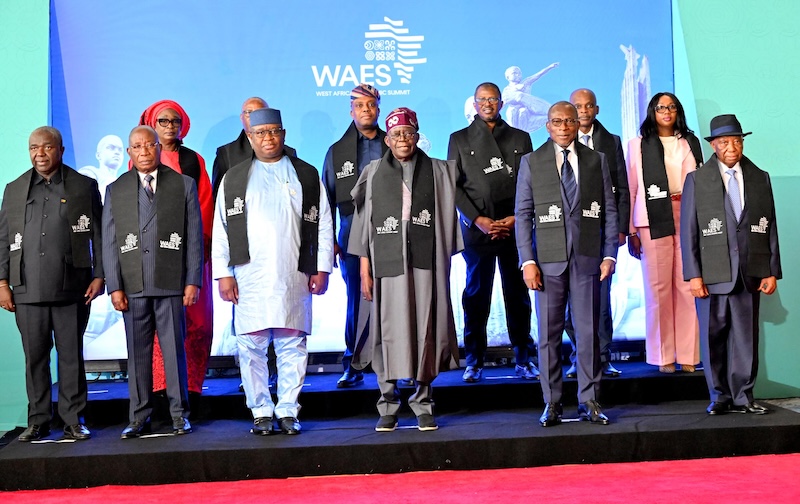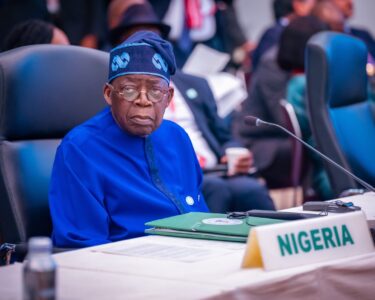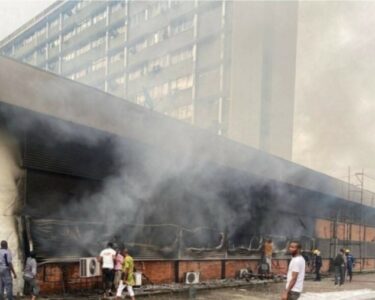West Africa Economic Summit 2025
Concluded in Abuja with bold calls for regional integration and trade reform
Summary
- President Tinubu urges end to ‘pit-to-port’ export model, calls for regional industrialisation
- ECOWAS leaders, private sector and youth engage in summit aimed at unlocking trade and investment
- Nigeria and Benin sign key integration deal as leaders back single currency and AfCFTA implementation
Abuja — The inaugural West Africa Economic Summit (WAES) 2025 concluded today at the Bola Ahmed Tinubu International Conference Centre in Abuja, Nigeria, with a resounding call for deeper regional integration, bold trade reforms, and a shift from resource dependency to industrialisation.
Held between June 20 and 21 under the theme “Unlocking Trade and Investment Opportunities in the Region,” the summit brought together heads of state, ministers, policy experts, and private sector leaders from across the Economic Community of West African States (ECOWAS).
Organised as part of Nigeria’s Renewed Hope economic diplomacy strategy, WAES 2025 aimed to chart a new course for inclusive growth and economic cooperation in line with the African Continental Free Trade Area (AfCFTA) vision.
A turning point for West Africa
In his opening address, President Bola Ahmed Tinubu, who also chairs the ECOWAS Authority of Heads of State and Government, described the summit as a “turning point” for the region’s economic transformation.
He challenged West African leaders to translate the region’s youthful population and vast natural resources into real economic value through innovation, digital infrastructure, and industrial growth.
“Let us recognise that Africa was left behind in previous industrial revolutions. We cannot afford to miss the next one,” Tinubu declared. “Our rare minerals power tomorrow’s green technologies, yet being resource-rich is not enough. We must also become value-chain smart.”
Tinubu also warned that West Africa’s youthful demographic could become a liability if investments in education, digital connectivity, and productive enterprise were not prioritised.
Emphasising the urgency for regional cooperation, he said, “Our prosperity depends on regional supply chains, energy networks, and data frameworks. We must design them together, or they will collapse separately.”
High-level participation and strategic agreements
Leaders from Ghana, Liberia, Sierra Leone, Senegal, The Gambia, Benin, Togo, and Guinea-Bissau attended the summit, along with key ministers from ECOWAS countries and representatives of regional institutions such as the West African Monetary Institute (WAMI), West African Monetary Agency (WAMA), ECOWAS Bank for Investment and Development (EBID), and the AfCFTA Secretariat.
In a landmark development, Nigeria and Benin signed a bilateral agreement to deepen economic and political ties, witnessed by Presidents Tinubu and Patrice Talon.
There was also notable outreach to Burkina Faso, Niger, and Mali, countries that have withdrawn from ECOWAS, signalling a commitment to inclusive dialogue and long-term regional unity.
Regional trade and currency proposals
Sierra Leone’s President Julius Maada Bio and Liberia’s President Joseph Boakai strongly advocated for a single West African currency to reduce trade transaction costs and enhance economic cohesion.
Business leaders and economists emphasised the need to expand intra-African trade, currently estimated at just 15%, to at least 60% through the adoption of systems such as the Pan-African Payment and Settlement System (PAPSS). Abubakar Suleiman, CEO of Sterling Bank Nigeria, underscored that increasing trade within the region would significantly reduce dependence on foreign imports.
Addressing inefficiencies and infrastructure gaps
Policy experts like Tayo Aduloju of the Nigerian Economic Summit Group (NESG) called for the urgent harmonisation of trade protocols and investment in infrastructure, citing inefficiencies at regional borders as a major constraint to growth.
Benin’s President Patrice Talon was critical of underperforming regional projects such as the West African Gas Pipeline and West African Power Pool, urging better implementation and accountability.
Youth, private sector, and cultural focus
The WAES also placed strong emphasis on youth empowerment, digital transformation, and private sector leadership. Sessions included a presidential roundtable, CEO forum, business-to-business and business-to-government meetings, cultural showcases, and investment expos.
Dr. Jumoke Oduwole, Nigeria’s Minister of Industry, Trade and Investment, delivered the keynote address, reinforcing Nigeria’s commitment to ECOWAS trade liberalisation and a regional investment-friendly climate.
Bianca Odumegwu-Ojukwu, Nigeria’s Minister of State for Foreign Affairs, highlighted the summit as a platform to turn potential into prosperity, particularly for women and young people.
Looking ahead: From promises to action
The summit is seen as a precursor to the 67th Ordinary Session of the ECOWAS Heads of State and Government, scheduled for June 22 at the State House Conference Centre, Abuja.
On social media, the summit sparked wide engagement, with commentators like @Omojuwa praising the call for “#OneVoiceOneFuture,” and users such as @lilyjoelily describing the event’s atmosphere as “vibrant and hopeful.” Though anecdotal, the sentiment reflects growing optimism in the region’s capacity to work together.
President Tinubu closed the summit by urging clear deliverables and collective responsibility.
“Let us emerge from this summit with actionable outcomes: a renewed commitment to ease of doing business, enhanced intra-regional trade, improved infrastructure connectivity, and innovative ideas that move our people from poverty to prosperity.”
As the dust settles on WAES 2025, attention now turns to the implementation of its resolutions and whether the vision of a united, industrial, and self-reliant West Africa will be turned into reality.







